Top 10 best electric hatchbacks 2018
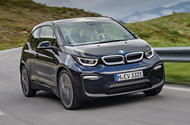 Fancy travelling in silence and producing zero emissions? Then an electric car may be for you, luckily we've created top ten list of the best EVs on sale
Fancy travelling in silence and producing zero emissions? Then an electric car may be for you, luckily we've created top ten list of the best EVs on sale
The benefits of electric vehicle technology are, at present, partly offset by the still-limited battery range offered, along with the extra weight of those packs.
Such obstacles are less of a hindrance for small cars that will predominantly be used for short journeys in cities, so it’s little surprise that a number of hatchbacks are among the most successful EVs to date. This list features pure electric cars along with a small number of range extenders, fitted with a small back-up petrol motor.
We’ve considered factors such as range and usability, driving dynamics and affordability. The relatively high cost of buying EVs compared to normal cars can offset the lower running costs, so it’s important to evaluate what type of car suits you first. But if you’re looking for a small EV, these are the ones we’d recommend.
1. BMW i3
The i3 has a rare quality for an electric car: an ability to appeal to people who like driving cars, especially in i3S form. While the i3’s short shape can make it nervous on motorways, its spritely handling ensures it thrives in the urban environment it’s designed for.
That’s helped by its innovative carbonfibre-reinforced plastic body, which ensures the car is remarkably light. The 168bhp electric motor (rising to 181bhp for the i3S) offers peak torque at zero revs and, although its top speed is only 99mph, its strong performance getting there wouldn’t shame a warm hatchback.
That said, extracting such performance does impact on the car’s electric range, which in our tests varied between 68 and 94 miles.
Opt for the range-extender version, which adds a two-cylinder bike engine and you can achieve around 150 miles without having to add power, turning the i3 into a truly viable go-anywhere vehicle.
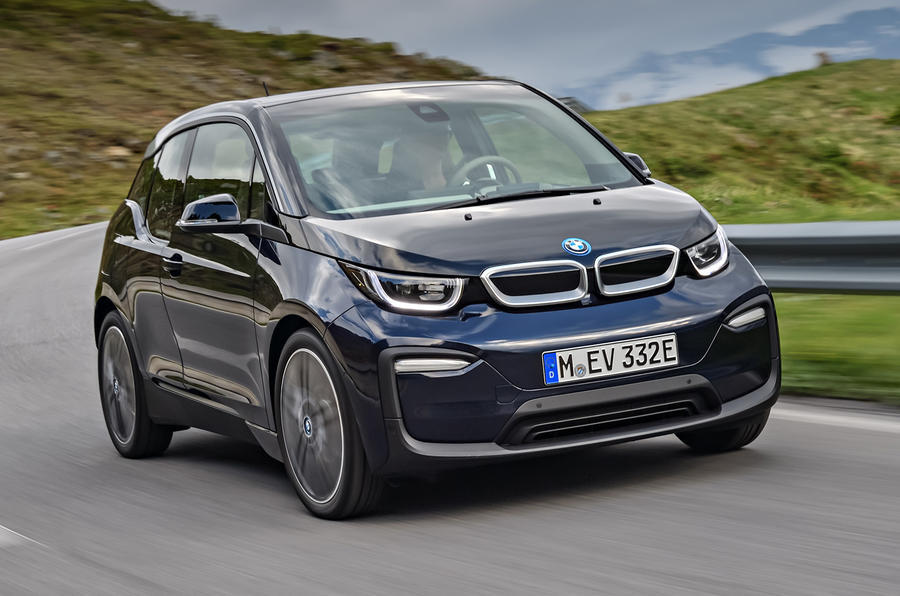
2. Volkswagen e-Golf
Perhaps the biggest complement you can pay the e-Golf is that it feels much like any other Golf. It occupies the same dimensions as other seventh-generation five-door models and, aside from a slight reduction in boot space due to the underfloor lithium ion batteries, is just as practical.
The e-Golf is powered by a 134bhp motor that delivers 199lb ft of torque, with a 24.2kWh battery offering a range of up to 186 miles. It might not be as usable as the Nissan Leaf, or as entertaining as a BMW i3, but the e-Golf is an excellent EV, delivered with the polish and standard you’d expect of any Volkswagen.
It’s as easy to use and uncompromised as any mass-market, pure-electric car can be right now.
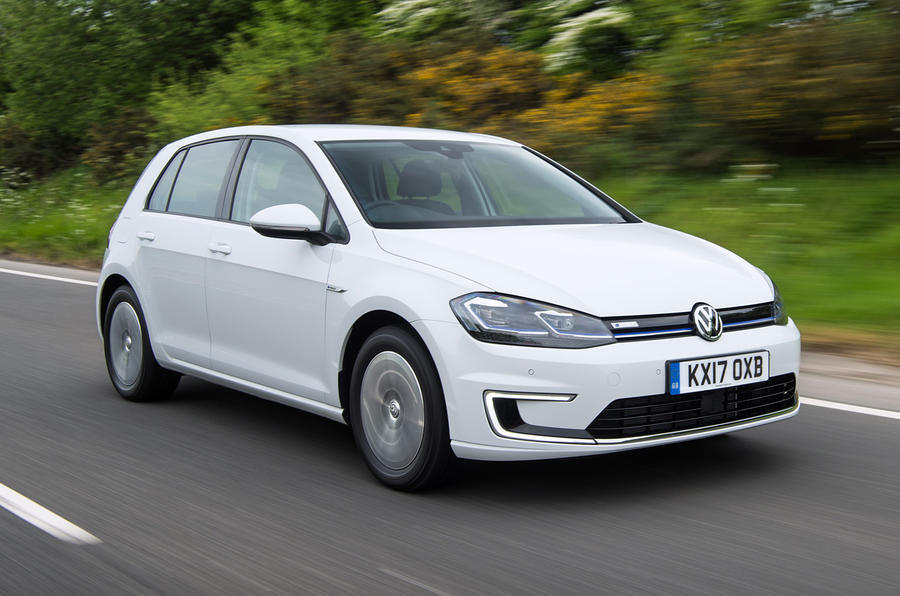
3. Renault Zoe
The Zoe was a viable option as an everyday vehicle when it was offered with a 22kWh battery with a 150 mile range – and that practicality has been enhanced by a new 41kWh option that has a claimed 250 mile range.
The Zoe offers outstanding value for money against its competitors, and is also pleasing to drive, quiet and classy – albeit with a somewhat leaden feel.
The battery hire spreads the cost, and the price includes installation of a fast-charge port – you can’t charge the Zoe on a standard three-pin outlet. That aside, the Zoe is a fine entry point into EV ownership.
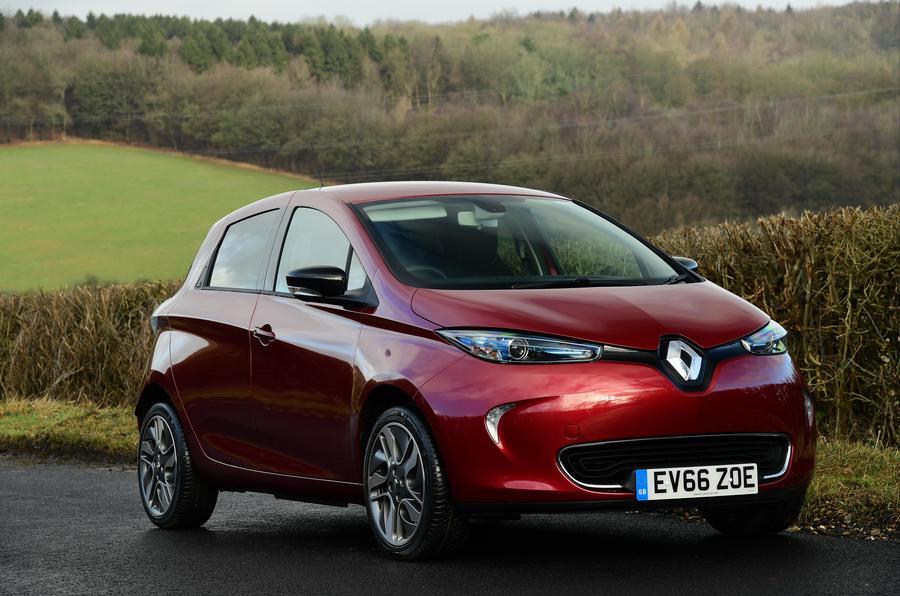
4. Hyundai Ioniq
The Hyundai Ioniq is a versatile platform, with electric, petrol-electric and plug-in hybrid powertains.
The EV version does without the independent multi-link rear suspension of the others, in order to pack in a bigger lithium ion battery pack giving a claimed range of 174 miles.
The Ioniq EV produces just 118bhp, but with 218lb ft of torque is can reach 62mph in under 10 seconds. Driving dynamics aren’t bad, but won’t set your pulse racing: the steering has reasonable weight but is somewhat vague, and this is a car happiest being driven within its limits.
As EVs go, the Ioniq is practical and good value, and worth considering against rivals such as the Nissan Leaf and BMW i3.
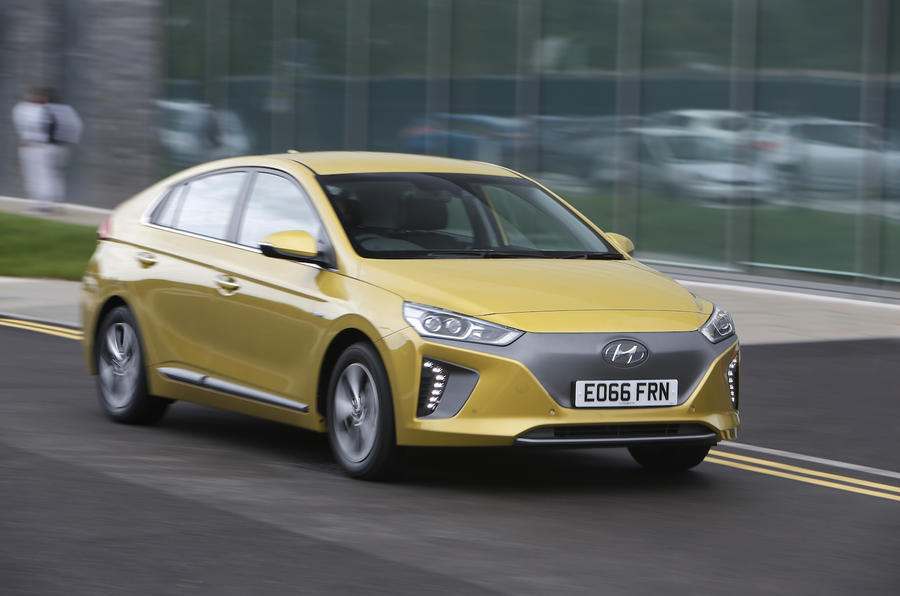
5. Opel Ampera-e
The original Ampera was a range-extender with separate petrol engine, but has now been turned into a smaller, and purely electric, machine.
It features a notably high-capacity battery pack, with 288 cells delivering 60kWh, enough for a class-leading claimed range of 323 miles (236 miles on more realistic WLTP tests).
Seating-position is MPV-high, the interior is stylish and there’s good rear leg room and a decent 381-litre boot. With 201bhp and 266lb ft of torque it’s pleasing to drive, and it’s good value for money.
The catch? It’s currently European-market only; if it comes to the UK it’s unlikely to be until 2019.
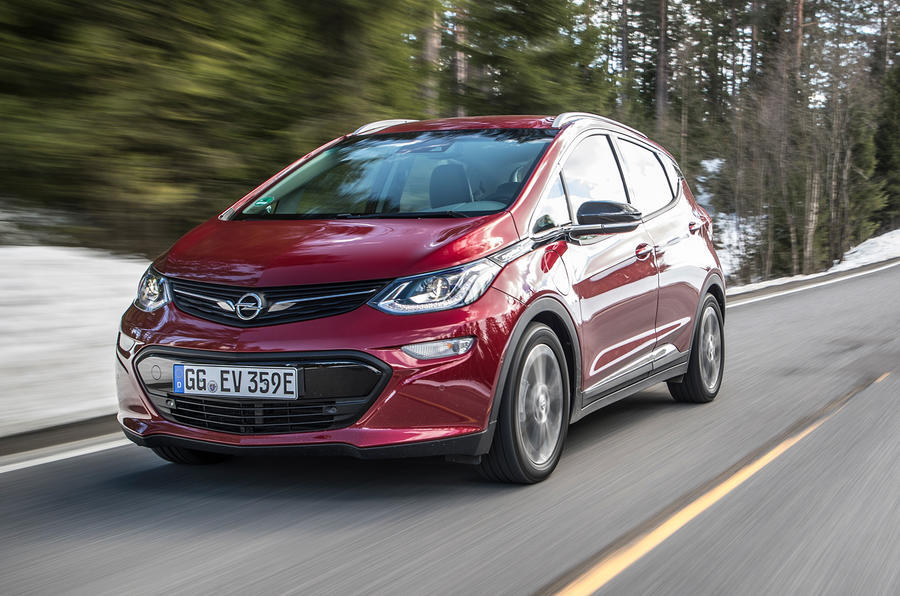
6. Nissan Leaf
The original version of Nissan’s electric hatchback has just been replaced by a newer model – a well-timed move, since the 2011 version is beginning to show its age.
At launch it moved the EV on with a claimed range of 124 miles, increased to 155 miles with a 30kWh battery in 2016, and it’s well-priced.
It’s a strong town car, with ample room for a family of four, but its age shows against better handling, better performing rivals.
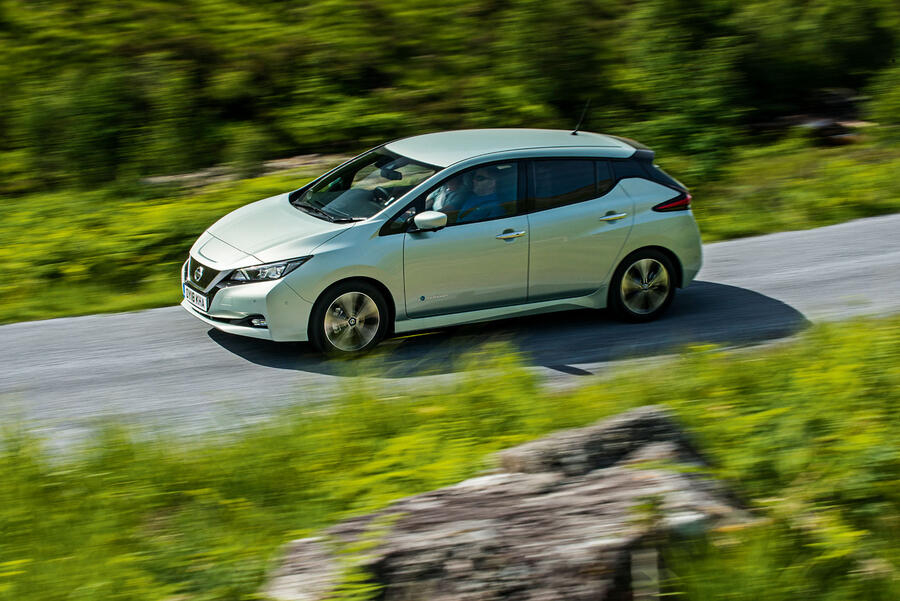
7. Kia Soul EV
Based on the conventionally powered version of the Soul hatchback, the EV gets revamped styling and a reworked, more rigid structure.
The single trim option includes an 8.0in touchscreen and other features. Power is drawn from a 27kWh battery, giving a range of 132 miles for the 109bhp electric motor.
The whole package feels dated: it doesn’t ride or handle brilliantly, and it’s not substantially cheaper than newer rivals with greater range and dynamic ability.
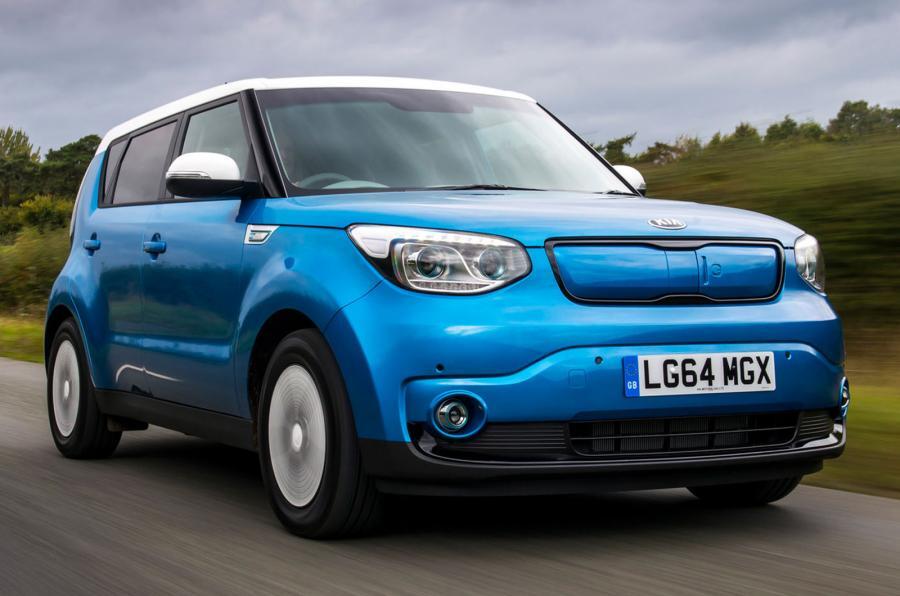
8. Volkswagen e-Up
As with the e-Golf, Volkswagen has based this EV on its existing city car, in order to drive down costs through shared parts.
And driving the e-Up feels familiar to those versed with the conventional version: the 81bhp motor sits up front, and the additional weight of the 230kg, 18.7kWh battery pack doesn’t affect the ride, even if the steering lacks feel. Claimed range is 75-100 miles.
Mechanically well-executed, but compact size makes it expensive option.
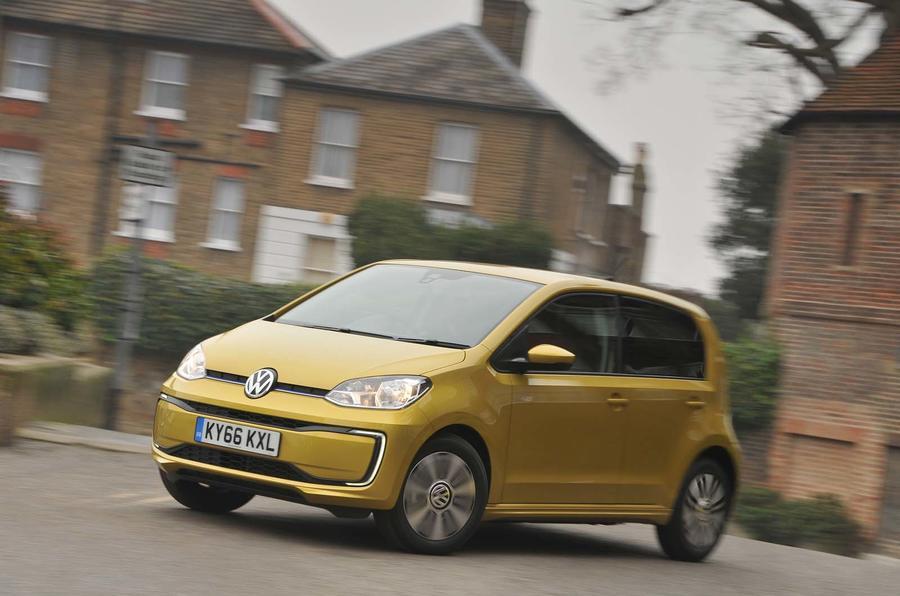
9. Peugeot iOn / Citroën C-Zero
These are rebadged versions of the Mitsubishi i-MiEV, which dates from the early days of production EVs.
They’re cleverly packaged, and don’t compromise on the things that make city cars useful: they have four doors, room for four occupants and decent boots.
But they show their age, with a top speed of 88mph and a real-world range of around 93 miles.
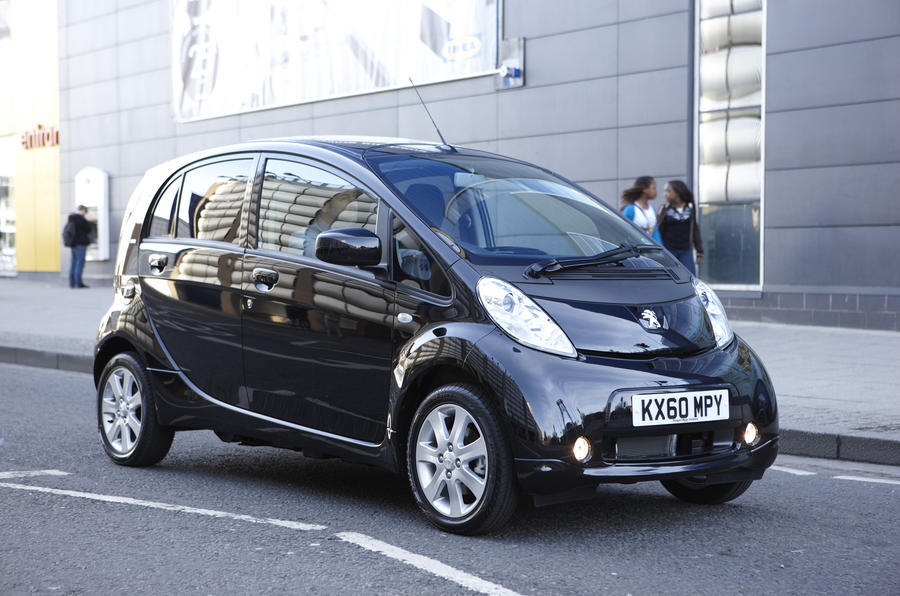
10. Smart ForTwo ED / Smart ForFour ED
Smart is unique in offering an electric cabriolet, as part of a three-pronged line-up that includes the four-seat, four-door ForFour.
But its ambitions and capacities are limited by size and price, and claimed 95 mile range doesn’t rank alongside the EV class leaders.
It’s also hindered by below par handling and unsettled ride, issues that also affect non-electric Smart models.
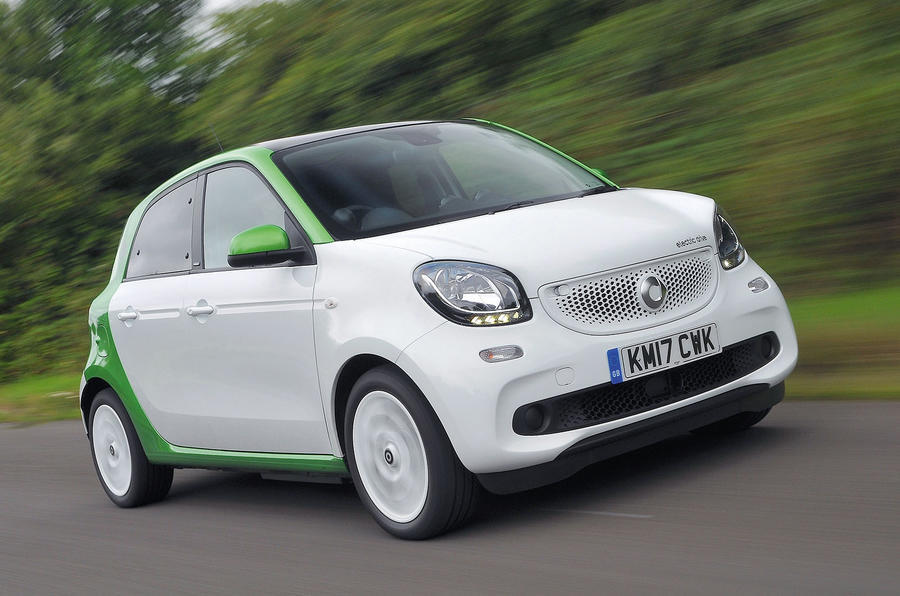

Comments
Post a Comment